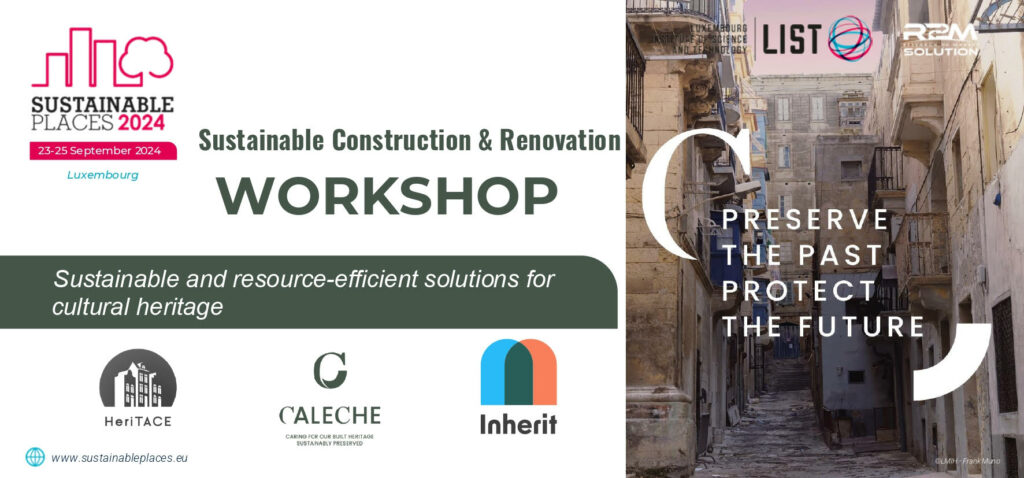Resource-Efficient Solutions for Cultural Heritage
Tuesday 24 September 2024 | 16:00-17:30 | Briefing Room GR | Workshop | Hybrid

Sustainable and resource-efficient solutions for cultural heritage
Step into the world of cultural heritage preservation with a glimpse into cutting-edge research projects funded by the European Commission. These initiatives are dedicated to crafting innovative, sustainable solutions for the enhancement and conservation of cultural heritage built environments. From inclusive and accessible designs to resilient, energy-efficient practices, the projects cover every aspect of a structure’s life cycle—spanning design, renovation, operation, monitoring, and maintenance.
At the heart of these endeavors is a commitment to maintaining the intrinsic value of heritage sites—be it artistic, historic, archaeological, social, or scientific. The proposed solutions prioritize user and visitor comfort, reduce operational costs, and integrate historical construction techniques with modern methods for sustainable restoration and comfort enhancement. Embracing both natural low-maintenance approaches and cutting-edge digital technologies, the projects aim to seamlessly blend tradition with innovation while respecting cultural identity.
Renewable energy integration is a key focus, ensuring sustainability aligns with the aesthetic and cultural essence of targeted buildings. The research also emphasizes cost-effective improvements in energy performance, surpassing traditional methods. Crucially, the involvement of stakeholders, cultural heritage protection bodies, and citizens is prioritized through co-creation processes, fostering societal acceptance. Moreover, these initiatives aim to provide decision-support tools for optimal, low-disruptive renovation, contributing to the broader Horizon Europe Partnership on ‘Driving Urban Transitions.’ Recognizing the significance of social sciences and humanities disciplines, the projects actively engage experts and institutions to amplify their societal impact. In this journey, social innovation emerges as a potent force, driving change, fostering new practices, and ensuring the collective ownership and market uptake of these transformative ideas.
Contributing projects:
Agenda:
- 1) Etienne Wurtz ( CEA, project coordinator), CALECHE project: “General introduction and context” (10 min )
- 2) Rachel Desmaris ( R2M) CALECHE project: “Objectives and strategies proposed by CALECHE » (10 min)
- 3) Antonia Vronti (SingularLogic S.A), Inherit project: “Next generation solutions for cultural heritage buildings: The INHERIT approach » ( 10 min)
- 4) Elodie Héberlé (CEREMA), CALECHE project: “Measuring the airtightness of historic wooden windows: Cerema’s contribution to the CALECHE project ». ( 10 min)
- 5) Arnold Janssens, HeriTACE project: “Future-proofing Heritage Townhouses by optimising Comfort and Energy in Time and Space: introduction to project HeriTACE »(10 min)
- 6) Philippe Thony ( CEA), CALECHE project: “Approach proposed towards PV integration acceptance on historic buildings and first applications in the CALECHE project use cases. » (10 min)
Conclusion by Etienne Wurtz and discussion
Workshop Chair: Etienne Wurtz, CEA
